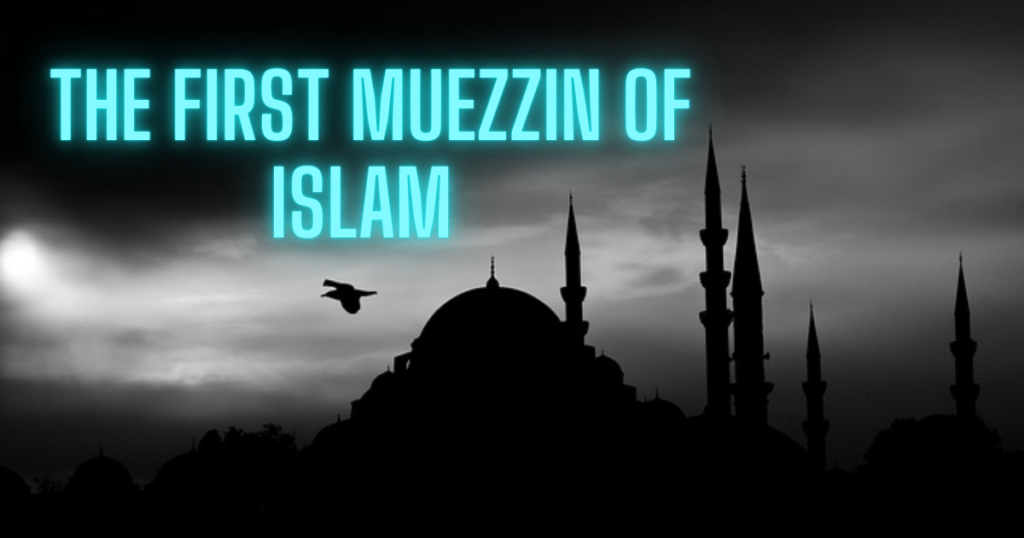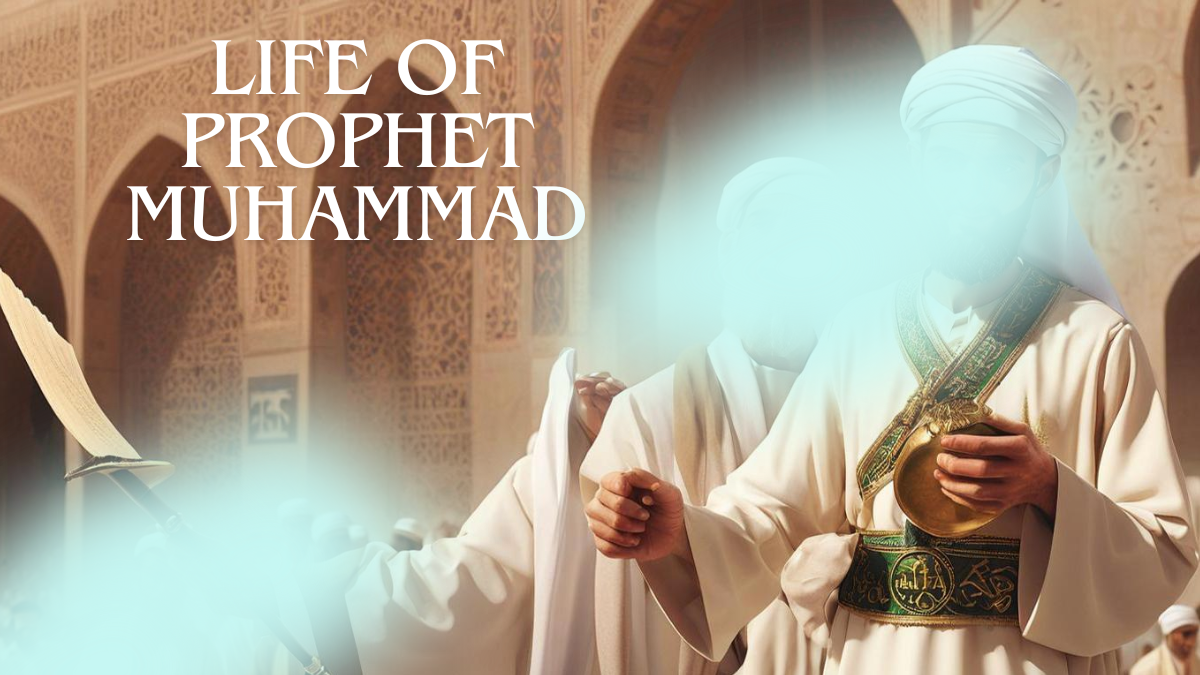
About The Battle of Karbala
The Battle of Karbala is a pivotal event in Islamic history that took place on the 10th day of Muharram in the year 680 CE (61 AH in the Islamic calendar). It is a deeply significant and tragic episode that profoundly impacted the Muslim world and has continued to influence Islamic culture values and spirituality for centuries.
The Battle of Karbala is one of the most significant events in Islamic history, particularly for Shia Muslims. It took place on October 10, 680 AD (Muharram 10, 61 AH) near the city of Karbala in present-day Iraq.
The battle occurred between the forces of Yazid I, the Umayyad caliph, and a small group led by Husayn ibn Ali, the grandson of Prophet Muhammad, who belonged to the Ahl al-Bayt (the family of the Prophet). Husayn’s followers consisted mainly of his family members and companions.
Husayn’s refusal to pledge allegiance to Yazid I, whom he considered corrupt and unjust, led to a confrontation. Husayn and his group were denied access to water for several days leading up to the battle, leaving them severely weakened. Despite being vastly outnumbered, they refused to submit to Yazid’s rule.
The battle itself was a tragic and unequal contest. Husayn and his followers fought valiantly, but they were ultimately overwhelmed by Yazid’s forces. The climax of the battle came on the 10th day of Muharram, known as Ashura, when Husayn and many of his companions were martyred.
The Battle of Karbala is commemorated annually by Shia Muslims during the month of Muharram, particularly on the day of Ashura. It is a time of mourning and reflection, with rituals such as processions, recitations of elegies, and passion plays (known as Ta’ziyah) depicting the events of Karbala. The story of Husayn’s sacrifice has become a symbol of resistance against tyranny and oppression in Islamic culture, inspiring countless generations with its message of standing up for justice and truth, even in the face of overwhelming odds.

Background
The backdrop to the Battle of Karbala was a political and religious crisis within the Islamic community. After the death of the Prophet Muhammad in 632 CE leadership disputes arose regarding the rightful successor (Khalifa) to lead the Muslim Ummah. These disputes eventually led to the division of the Muslim community into two major factions, the Sunnis and the Shias.
In 661 CE the Umayyad Caliphate was established with Yazid ibn Muawiya as the caliph. However, many Muslims, particularly among the followers of Ali ibn Abi Talib (the cousin and son in law of the Prophet Muhammad) believed that the caliphate should rightfully belong to the descendants of Ali due to their familial connection to the Prophet.
Key Figures
Imam Hussain ibn Ali: He was the grandson of the Prophet Muhammad and the son of Imam Ali and Fatimah the daughter of the Prophet. Imam Hussain is considered a central figure in Shiite Islam and played a pivotal role in the events of Karbala.
Yazid ibn Muawiya: Yazid was the Umayyad caliph who demanded allegiance from Imam Hussain a demand that was refused. This demand and Yazid’s perceived unjust rule were major catalysts for the conflict.
The Journey to Karbala
The journey to Karbala is a poignant chapter in Islamic history, marked by the steadfastness and sacrifice of Husayn ibn Ali, the grandson of Prophet Muhammad. This narrative recounts the events leading up to the Battle of Karbala, tracing Husayn’s journey from Madinah to the plains of Karbala, where he and his loyal companions confronted the forces of tyranny and oppression. Through courage and determination, Husayn’s expedition became a timeless symbol of resistance against injustice and a beacon of hope for generations to come.
Departure from Madinah
The journey to Karbala commenced with Husayn’s departure from the city of Madinah, the spiritual heartland of Islam. As the son of Ali ibn Abi Talib and Fatimah, the daughter of Prophet Muhammad, Husayn bore a legacy of nobility and righteousness. Yet, his path diverged from the corridors of power, for he chose principle over political expediency.
In Madinah, Husayn witnessed the erosion of Islamic values under the rule of Yazid ibn Muawiya, the Umayyad caliph whose tyranny and corruption threatened the very essence of Islam. Yazid’s demand for allegiance posed a moral dilemma for Husayn, who refused to pledge loyalty to a ruler whose actions contradicted the teachings of Islam.
Travel to Mecca
Seeking refuge from the oppressive regime, Husayn embarked on a journey to Mecca, the sanctuary of Islam. Accompanied by his family and a band of loyal followers, Husayn traversed the desert plains, his heart heavy with the weight of responsibility.
Mecca offered temporary respite from the political storm brewing in the Islamic world. Amidst the sacred precincts of the Kaaba, Husayn contemplated his next course of action, torn between the desire for peace and the call to confront injustice.
Letters from Kufa
In Mecca, Husayn received emissaries from the city of Kufa, located in present-day Iraq. The letters carried desperate pleas from the people of Kufa, who yearned for liberation from Yazid’s oppressive rule. They pledged allegiance to Husayn and implored him to lead them in revolt against the tyrant.
Moved by the cries of the oppressed, Husayn deliberated on the decision that would shape the course of history. Despite the risks and uncertainties that lay ahead, he resolved to heed the call of duty and embark on a perilous journey to Kufa.
Journey towards Kufa
Leaving behind the sanctuary of Mecca, Husayn and his followers set out on the arduous journey towards Kufa. The road ahead was fraught with danger, as they encountered hostile forces determined to thwart their mission.
Through barren deserts and rugged terrain, Husayn’s caravan pressed onward, fueled by faith and conviction. Along the way, they encountered tribesmen who offered both assistance and caution, warning of the perils that awaited them in Kufa.
Blockade at Karbala
As Husayn’s entourage approached the plains of Karbala, they were met with a formidable blockade erected by the forces of Yazid. Led by the ruthless governor, Ubaydullah ibn Ziyad, the army sought to crush Husayn’s rebellion before it could gain momentum.
Cut off from vital resources and surrounded by enemies, Husayn and his companions faced an existential threat. The scorching sun beat down upon them, intensifying their thirst and fatigue, yet their spirits remained unbroken, fortified by the righteousness of their cause.
Standoff at Karbala
Despite the overwhelming odds, Husayn and his followers resolved to make their stand at Karbala. They pitched their camp on the barren plains, preparing to confront their adversaries with courage and defiance.
As the days passed, tensions mounted between the opposing forces, each side bracing for the inevitable clash. Husayn delivered impassioned sermons, rallying his supporters and reaffirming their commitment to the principles of justice and freedom.
Ashura
The fateful day of Ashura dawned upon the plains of Karbala, shrouded in foreboding and sorrow. On this day, Husayn and his companions faced their greatest trial, as Yazid’s army launched a ferocious assault upon their encampment.
Despite being vastly outnumbered, Husayn’s band of warriors fought with unmatched valor and resilience. They repelled wave after wave of attacks, their resolve unyielding in the face of overwhelming adversity.
Yet, as the battle raged on, tragedy struck with devastating force. One by one, Husayn’s closest companions fell in combat, their blood mingling with the sands of Karbala. Amidst the chaos and carnage, Husayn stood resolute, a beacon of defiance amidst the darkness of tyranny.
Martyrdom of Husayn
In the final moments of the battle, Husayn confronted his foes with unwavering courage, refusing to bow before the forces of oppression. Surrounded by enemies, he embraced martyrdom with dignity and grace, sacrificing his life for the sake of truth and justice.
The martyrdom of Husayn sent shockwaves throughout the Islamic world, igniting a fire of resistance that would endure for centuries to come. His legacy inspired countless generations to rise against tyranny and oppression, embodying the timeless values of courage, compassion, and sacrifice.
The Siege at Karbala
Imam Hussain and his followers eventually reached Karbala a barren land situated on the banks of the Euphrates River. They arrived on the 2nd of Muharram, 680 CE. However Yazid’s army led by Umar ibn Sa’ad soon arrived and encircled them cutting off their access to water.
Imam Hussain’s camp consisted of about 72 individuals including his family members and loyal companions. They were faced with an army estimated to be in the thousands. Despite the overwhelming odds Imam Hussain and his companions remained steadfast in their determination to stand up for justice and resist tyranny.
The Battle Begins
The Battle of Karbala officially commenced on the morning of the 10th of Muharram. The day is known as Ashura and holds immense significance in Islamic history.
The battle began with single combats between Imam Hussain’s companions and Yazid’s forces. As the day wore on the fighting intensified and the companions of Imam Hussain displayed exceptional bravery and devotion.
The Martyrdom
As the battle raged on, one by one, Imam Hussain’s companions and family members went forth to the battlefield facing insurmountable odds and sacrificing their lives for the cause of justice. Among the most notable martyrs were Imam Hussain’s half brother Abbas ibn Ali and his young son Ali Zayn al-Abidin.
Imam Hussain himself fought valiantly but as the day wore on he became the sole survivor from his camp. Fatigued wounded and thirsty he continued to confront the enemy. Finally in the late afternoon he was struck by multiple arrows and his horse was killed. Imam Hussain fell to the ground and he was captured by Yazid’s forces.
Aftermath Battle Of Karbala
The Battle of Karbala resulted in a devastating loss for Imam Hussain’s camp. Imam Hussain along with the women and children of his family was taken captive and subjected to a grueling journey to the court of Yazid in Damascus.
The sudden battle of Karbala had a very bad impact on the Muslim world. It became a symbol of resistance against oppression tyranny and the unwavering commitment to principles of justice and truth. The martyrdom of Imam Hussain and his companions continues to be commemorated annually during the month of Muharram particularly on the day of Ashura by Muslims around the world especially Shiites through rituals of mourning and reflection.
The Battle of Karbala remains a powerful and enduring narrative that speaks to the universal values of justice courage and the refusal to compromise one’s principles even in the face of overwhelming adversity. It stands as a testament to the resilience of the human spirit and continues to inspire people of all backgrounds.
Conclusion
The journey to Karbala stands as a testament to the indomitable spirit of Husayn ibn Ali and his companions, who chose to confront tyranny and injustice at great personal cost. Their sacrifice serves as a reminder of the eternal struggle between right and wrong, truth and falsehood.
As we commemorate the tragedy of Karbala, let us draw strength from the example of Husayn, and strive to uphold the principles of justice, compassion, and dignity in our own lives. For in the words of Husayn himself, “Death with dignity is better than a life of humiliation.”




